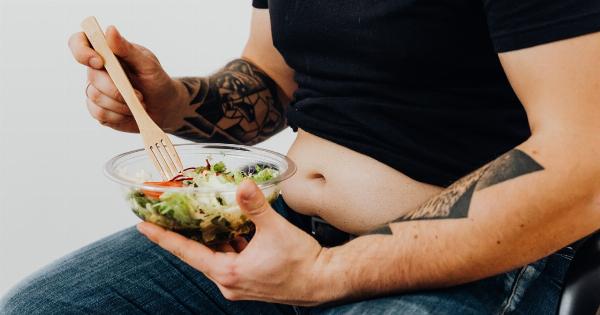New Year’s Eve is known for parties, celebrations, and indulgent foods. It can be challenging to stick to your diet goals when surrounded by temptation.
However, with some planning and preparation, it is possible to enjoy the festivities while staying on track with your diet. Here are ten suggestions for staying on track with your diet during New Year’s Eve:.
1. Plan Ahead
Before attending any parties, plan what foods you will and will not eat. Avoid arriving at a party hungry, as this can lead to overeating. Consider eating a small meal or snack before attending the event.
2. Bring a Dish to Share
If you are worried there will not be any healthy options at the party, bring a dish to share that aligns with your dietary restrictions. This way, you will have at least one healthy option to enjoy.
3. Limit Alcohol Consumption
Alcoholic beverages are often high in calories and can lower your inhibitions, leading to poor food choices. Limit your alcohol consumption, and opt for lower calorie options such as vodka and soda or a glass of wine.
4. Control Portion Sizes
It’s ok to sample some of your favorite foods, but be mindful of your portion sizes. Use a small plate and avoid going back for seconds. Try to fill your plate with mostly fruits, vegetables, and lean sources of protein.
5. Stay Hydrated
Drink plenty of water throughout the night to avoid dehydration and help keep you feeling full. Adding some lemon or lime to your water can also help detoxify your body and reduce inflammation.
6. Avoid Grazing
Mindlessly snacking can quickly add up in calories. Instead, be intentional with your food choices and take the time to savor each bite. Step away from the food table and find a spot to enjoy your food and company.
7. Stay Active
Include some physical activity or exercise into your day to help burn off some extra calories and boost your metabolism. Consider a workout class or going for a walk with friends and family.
8. Focus on the Company
Remember that the holidays are about spending time with loved ones, not just the food. Focus on enjoying the company and making memories instead of solely on the food.
9. Practice Mindfulness
Be mindful of your body’s hunger and fullness signals. Take breaks in between eating to check in with your body and assess how hungry or full you feel. This can help you avoid overeating and tune into your body’s needs.
10. Don’t Be Too Hard on Yourself
If you do indulge in some less healthy foods, don’t beat yourself up. One meal or day will not sabotage your progress. Get back on track the next day and practice self-compassion. Remember that progress, not perfection, is the goal.





























